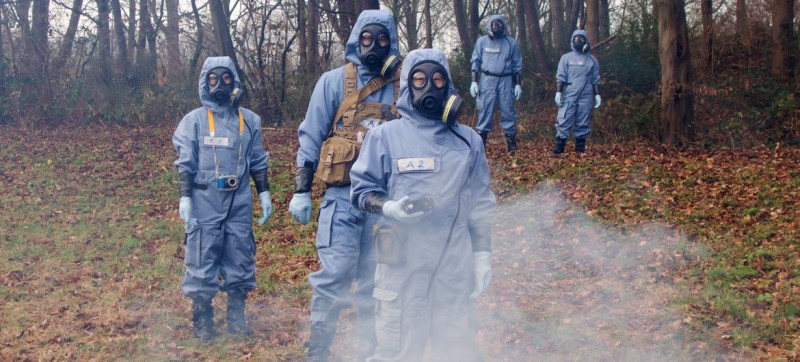Contents
The OPCW inspectorate division maintains readiness to conduct Challenge Inspections, Investigations of Alleged Use, and to provide technical assistance in the event of a chemical incident. Commemorating the 25th anniversary of the historic Chemical Weapons Convention on Friday, the UN chief described the treaty as “a major achievement” in disarmament. Secretary-General António Guterres issued a statement hailing the “powerful testament” of the convention to the security benefits of multilateral instruments. “We cannot allow an erosion of this essential pillar of the disarmament and non-proliferation regime,” he said. “There can be no justification for their use”. The UN chief reminded that the use of chemical weapons is a serious violation of international law. “It is imperative that those responsible for using these abhorrent weapons are identified and held accountable, for the sake of the victims and to prevent any future chemical warfare”. In its statement, the Security Council underscored its commitment to never use them “anywhere, at any time”, or under “under any circumstance”. The Council member also reiterated their call for “the complete destruction of chemical weapons stockpiles and abandoned chemical weapons,” in accordance with what’s formally known as the Convention on the Prohibition of the Development, Production, Stockpiling and Use of Chemical Weapons and on Their Destruction (CWC), which entered into force on 29 April 1997. Moreover, they condemned the use of these indiscriminate, inhumane weapons in conflicts such as the Syrian civil war, over the past quarter of a century. ‘Abhorrent weapons’
CWC
For humanity’s sake
The Council stressed that no one should, “under any circumstances” develop, produce, acquire, stockpile, or retain chemical weapons.
Nor should anyone transfer, directly or indirectly, chemical weapons; engage in any military preparations to use chemical weapons; or assist, “encourage or induce, in any way, anyone to engage in any activity prohibited to a State party under the Convention.”
They reaffirmed that “the development, production and use of chemical weapons, as prohibited by the Convention, remained a clear threat to international peace and security”.
Recognizing OPCW
Ambassadors also urged all States that have not yet done so, to become parties to the CWC “without delay”.
The statement concluded with their recognizing the crucial role of the Organisation for the Prohibition of Chemical Weapons (OPCW) – the body responsible to ensure the “impartial, independent and professional implementation of all provisions of the Convention.”
Faltering compliance
Meanwhile, at a high-level event in the Security Council? making the 25th anniversary, the High Representative for Disarmament Affairs argued that the norm against chemical weapons has been repeatedly and fundamentally challenged.
According to Izumi Nakamitsu, this has been driven by a lack of strict compliance by some, a deteriorating international security environment, the rise of dangerous non-State actors, and developments in science and technology.
“The international community must act together to shore up the norm against the use of chemical weapons, to hold to account anyone who would stoop to using them and to revive the global regime,” she said.
Syria challenge
The UN disarmament chief noted that the toxic chemicals have been used with impunity as weapons in Syria, describing it as an immediate challenge facing the CWC.
“The gaps, inconsistencies and discrepancies in Syria’s initial and subsequent declarations to the OPCW must be resolved,” she said, adding that the Government of the war-torn and divided country, after more than a decade of fighting, must also allow “immediate and unfettered access for the OPCW”.
Without Syria’s cooperation, the international community cannot have confidence that the country is abiding by its commitments.
Address ‘profound violations’
Ms. Nakamitsu said that if we fail to both identify the perpetrators of chemical weapon attacks and hold them accountable, “we will further damage the norm against the use of chemical weapons”.
“Such profound violations of international law cannot continue to go unaddressed and unresolved”.
Highlighting the growing challenges that they pose, the senior UN official urged for stronger collaboration to “restore the taboo against chemical weapons” and finally consign them “to the pages of history”.

Chemical weapons were allegedly used in Aleppo city, Syria.




Comments are closed, but trackbacks and pingbacks are open.